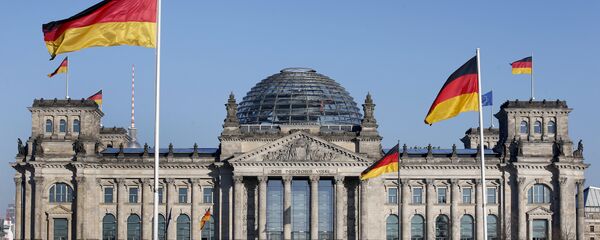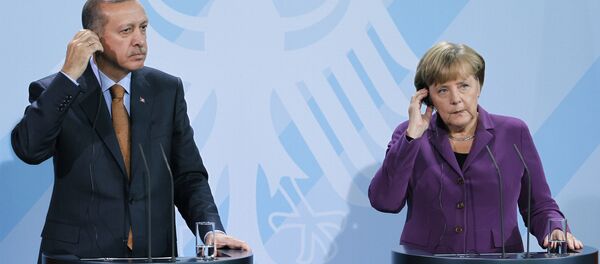"Co-existence can only work in Germany if we all speak German," Spahn, who is currently serving as junior finance minister, told The Telegraph. "We can and should expect this from every immigrant."
He especially criticized those working in the country's capital, Berlin, for excessively speaking English instead of German.
"It drives me up the wall the way waiters in Berlin only speak English," he told the German newspaper Neue Osnabrücker Zeitung.
"You would never find this kind of lunacy in Paris," he also added, referring to the strong preservation of and pride by the French in their unique language.
English is taught early on in German schools, as it is considered a much-needed skill, and many restaurants and bars across the country, especially in popular Berlin districts like Mitte and Prenzlauerberg, recruit employees from all over Europe.
In 2015, Merkel's administration mandated that immigrants must learn German in order to receive permanent residence and benefits. However, these regulations are not applicable to asylum-seekers from "less successful economies," under the European Union's freedom of movement rules.
In Spahn's eyes, increased immigration and globalization is still directly threatening the German language and culture.
"This is the need to have a home, to feel at home," Mr Spahn said. "People want to be able to know what they can expect in everyday life and that things aren't changing all the time. Not every cultural difference is an enrichment. I have to accept the growing number of head scarves on our streets, but I do not feel enriched by it."
In wake of these concerns, The Daily Express reported that German Parliament members Gunther Krichbaum, Axel Schäfer and Johannes Singhammer, wrote a letter to Chancellor Merkel urging that "in addition to the equal use of the German language as a working language in the bodies of the European Union and increased use in all international institutions, the German language especially needs to be thoroughly used in our own country."
"Everything must be done to ensure that German does not become a sort of ‘residual language'," they added.






